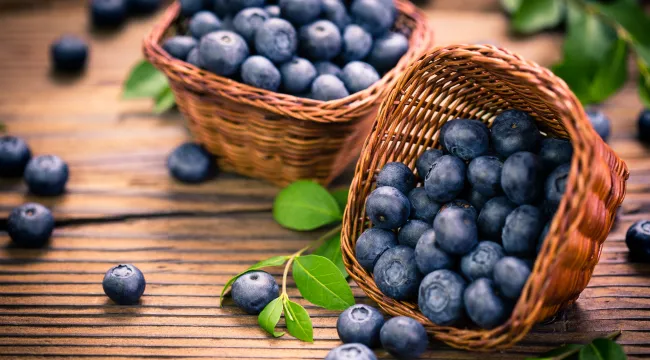
Fruits can be a healthy addition to your dog’s diet, offering sweet treats with nutritional benefits. However, it’s crucial to know which fruits are safe and beneficial for dogs and how to introduce them properly. Here’s a comprehensive guide to dog-friendly fruits and their health benefits.
Understanding the Importance of Fruit in a Dog’s Diet
Incorporating fruits into a dog’s diet can offer various health benefits. Fruits are not only a source of essential vitamins and minerals but also provide fiber, aiding in digestion and helping maintain a healthy weight. They’re a fantastic way to diversify a dog’s diet with different flavors and textures.
Nutritional Benefits of Fruit for Dogs
Fruits are packed with vitamins, such as vitamin C, which supports the immune system, and vitamin A, crucial for vision health. Antioxidants in fruits help combat free radicals, reducing the risk of chronic diseases. Fiber promotes healthy digestion, and natural sugars in fruits offer a healthy energy boost.
Safe and Healthy Fruits for Dogs
- Apples (without seeds and core): Apples are a great source of vitamins A and C, as well as fiber, helping in digestion and supporting immune health. Remember to remove the seeds and core, as apple seeds contain cyanide, which is harmful to dogs.
- Bananas: High in potassium, vitamins, biotin, fiber, and copper, bananas are good for dogs in moderation due to their higher sugar content. They can help maintain blood pressure, support heart and kidney functions, and enhance muscle health.
- Blueberries: Known for their antioxidant properties, blueberries can help prevent cell damage in dogs. They’re also rich in vitamins C and K, fiber, and phytochemicals.
- Cantaloupe: This melon is low in calories but high in water content, vitamins A and C, and fiber. It’s good for hydration and immune support but should be given in moderation due to its sugar content.
- Cranberries: Both fresh and dried cranberries can be eaten by dogs in small quantities. They’re known for preventing urinary tract infections and boosting overall health with their vitamins, minerals, and antioxidants.
- Mango: This sweet fruit is loaded with vitamins A, B6, C, and E, along with potassium and beta-carotene. Remove the skin and pit before offering it to your dog, as the pit can be a choking hazard and contain cyanide.
- Oranges: Oranges are fine for dogs to eat in small amounts. They provide vitamin C, potassium, and fiber. However, remove the peel and seeds, and be mindful of the acidic content, which might not agree with all dogs.
- Peaches: Fresh peaches can be a great source of vitamin A and fiber. Ensure the pit is removed due to its cyanide content. Avoid canned peaches with sugary syrups.
- Pears: Pears offer vitamins C and K, fiber, and copper. They can help reduce the risk of stroke in dogs. Always remove the pit and seeds, and feed in moderation.
- Watermelon (without seeds or rind): Watermelon is excellent for hydration, containing vitamins A, B6, and C, and potassium. It’s mostly water, making it a refreshing, low-calorie treat.
- Strawberries: These berries are high in fiber and vitamin C, aiding in digestion and boosting the immune system. They also contain enzymes that can help whiten your dog’s teeth.
- Raspberries: Raspberries are low in sugar and calories but high in fiber, vitamins, and antioxidants. They’re especially good for senior dogs due to anti-inflammatory properties that can help with joint pain.
- Blackberries: Like raspberries, blackberries are packed with antioxidants, vitamins, and fiber. They support overall health and can contribute to a shiny coat.
Each of these fruits offers unique benefits, from aiding hydration to providing essential nutrients.
Best Fruits for Canine Health

Including fruits in your dog’s diet can offer them a variety of health benefits, as long as they’re given in moderation and properly prepared to avoid choking hazards or digestive issues. While there isn’t a single “best” fruit for all dogs—since individual dogs may have different nutritional needs and preferences—a commonly recommended and highly nutritious option is blueberries.
Blueberries stand out for several reasons:
- Antioxidants: They are rich in antioxidants, which can help counteract free radicals in your dog’s body. This is important for preventing cell and tissue damage, potentially reducing the risk of chronic diseases and promoting overall health.
- Fiber: Blueberries contain a good amount of fiber, which can aid in digestive health and help maintain a healthy weight by promoting a feeling of fullness.
- Vitamins and Minerals: They are a good source of vitamins C and K, as well as manganese, which support the immune system and contribute to bone health.
- Low Calorie: Being low in calories makes blueberries a healthy treat option that won’t contribute significantly to weight gain, assuming they’re fed in appropriate amounts.
It’s crucial to introduce any new food, including blueberries, into your dog’s diet gradually to monitor for any adverse reactions, such as allergies or gastrointestinal upset. Always ensure that the fruits are washed and served in a size-appropriate manner. For small dogs, you might need to cut the blueberries in half to prevent choking.
Remember, while blueberries and other dog-safe fruits like apples (without seeds), bananas, and watermelon can be beneficial, they should only make up a small portion of your dog’s diet. The primary diet should be well-balanced and formulated specifically for dogs, considering their nutritional needs at different stages of life. If you’re considering adding fruits or making any significant changes to your dog’s diet, it’s always best to consult with your veterinarian to ensure it’s suitable for your individual dog’s health status and dietary needs.
How to Introduce Fruit into Your Dog’s Diet
Start with small amounts to see how your dog reacts, and always remove any seeds, pits, or inedible parts to prevent choking or intestinal blockage. Introduce one type of fruit at a time to monitor for any adverse reactions.
Fruit Recipes and Treats for Dogs
Fruit recipes and treats for dogs can be a delightful way to supplement your pet’s diet with additional vitamins, minerals, and hydration, all while providing them with a refreshing and tasty snack. When incorporating fruits into your dog’s treats, it’s essential to remember that not all fruits are safe for dogs, and those that are should be served in moderation. Here are some simple, dog-friendly fruit recipes and treats that can bring a healthy variety to your furry friend’s diet:
1. Frozen Blueberry Yogurt Bites
Ingredients:
- 1 cup plain, unsweetened yogurt
- 1/2 cup fresh blueberries
Instructions:
- Mix the yogurt and blueberries gently.
- Spoon the mixture into an ice cube tray or silicone mold.
- Freeze until solid.
- Pop out a bite and offer it to your dog as a cool treat, especially refreshing during warmer months.
2. Banana-Peanut Butter Snack
Ingredients:
- 1 ripe banana
- 2 tablespoons peanut butter (ensure it’s xylitol-free)
Instructions:
- Mash the banana and mix it well with the peanut butter.
- Spread the mixture onto a baking sheet in small, treat-sized dollops.
- Freeze for a few hours until solid.
- Serve as a frozen treat or at room temperature as a soft snack.
3. Apple Crunch Pops
Ingredients:
- 1 apple
- 1 cup water or unsalted chicken broth
- A pinch of cinnamon (optional)
Instructions:
- Core the apple and cut it into small, bite-sized pieces, ensuring there are no seeds.
- Mix the apple pieces with water or broth, adding a sprinkle of cinnamon if desired.
- Pour the mixture into an ice cube tray and freeze.
- Once frozen, these can be given as a crunchy, hydrating treat.
4. Watermelon Sorbet
Ingredients:
- 2 cups seedless watermelon, cubed
- 1/2 cup coconut water or plain water
Instructions:
- Puree the watermelon and coconut water until smooth.
- Pour the mixture into an ice cube tray or shallow dish and freeze.
- Once frozen, break into chunks and serve as a frosty treat.
5. Sweet Potato & Apple Leather
Ingredients:
- 1 sweet potato, cooked and mashed
- 1 apple, pureed
Instructions:
- Preheat your oven to the lowest temperature setting.
- Mix the sweet potato and apple puree until well combined.
- Spread the mixture thinly and evenly on a parchment-lined baking sheet.
- Bake for 2-3 hours, or until the mixture is dry and leathery.
- Let it cool, then cut into strips or bite-sized pieces for a chewy treat.
Safety Tips:
- Always remove seeds and cores from fruits to prevent choking and avoid toxic substances (e.g., apple seeds contain cyanide).
- Introduce new treats slowly to watch for any adverse reactions.
- Consult with your vet before introducing new ingredients into your dog’s diet, especially if your dog has specific health issues or dietary restrictions.
These recipes are not only fun to prepare but also provide a healthy, natural way to pamper your pet with something special. Remember, treats should not make up more than 10% of your dog’s daily calorie intake to maintain a balanced diet.
Precautions and Limitations When Feeding Fruit to Dogs
While fruits offer many benefits, they should be given in moderation due to their sugar content, which can lead to obesity or dental issues if consumed in excess. Some fruits, like grapes and raisins, are toxic to dogs and must be avoided.
Consulting with a Veterinarian for a Balanced Diet
Before making any significant changes to your dog’s diet, it’s advisable to consult with a veterinarian. They can provide guidance on the best fruits to include based on your dog’s health, weight, and nutritional needs.
Other Dietary Considerations for Dogs
A balanced diet for a dog should primarily consist of high-quality commercial dog food, which is formulated to meet all their nutritional requirements. Fruits should be considered as complementary treats rather than meal replacements.
Conclusion
Incorporating fruits into your dog’s diet can provide them with essential vitamins, minerals, and antioxidants, contributing to their overall health and vitality. By choosing safe fruits and preparing them properly, you can offer your dog delicious and nutritious snacks. Always remember to introduce new foods gradually and monitor your dog’s reaction. With these guidelines, you can safely enjoy sharing some fruity treats with your furry friend.
Read More:
- Can Dogs Eat Cumin?
- Can Dogs Eat Banana Peels?
- Can Dogs Eat Octopus?
- Can Dogs Eat Oatmeal Cream Pies?
- Can Dogs Have Provolone Cheese?
- Can Dogs Eat Egg Rolls?
- Can Dogs Eat Tamales?
- Can Dogs Eat Yellow Rice?
- Can Dogs Eat Babybel Cheese?
- Can Dogs Eat Plantain Chips Safely?
- Can Dogs Eat French Toast?
- Can Dogs Eat Veggie straws?
- Can Dogs Eat Rotisserie Chicken?
- Can Dogs Eat Orange Chicken?
- Can Dogs Eat Durian Safely?
- Can Dogs Eat Cheerios?
- Can Dogs Eat Couscous?
- Can Dogs Eat Funyuns?
- Can Dogs Eat Acai?
- Can Dogs Eat Tuna?
- Can Your Dog Eat Onions?
- Can my dog eat this?



